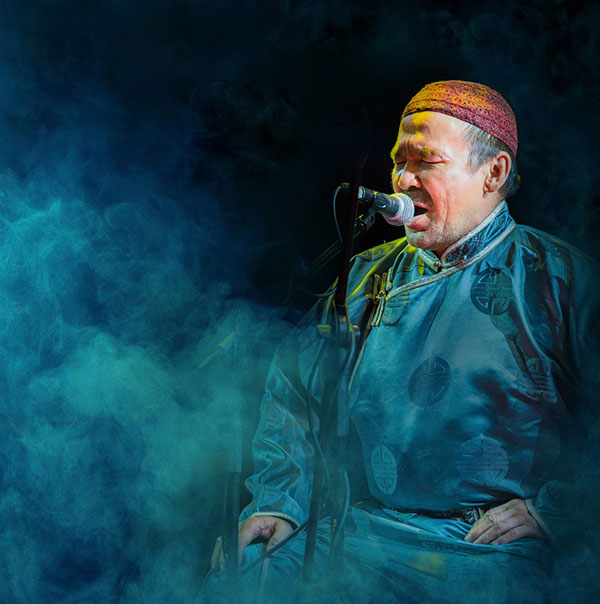 |
|
Tuvan musician Sayan Bapa founded his band in 1992 with his friend Kaigalool Khovalyg. The quartet Huun-Huur-Tu tours China this month.[Photo provided to China Daily] |
"The audiences are attracted by the melodies and the exotic language (Tuvan and Mongolian). After the concerts, people want to go and see what kind of places could produce such songs," Liu says.
Huun-Huur-Tu's four musicians are all masters of different styles of khoomei, for which Tuva is famous. Tulush will perform the solo-style sygyt, which is characterized by high-pitched whistle melodies. Khovalyg and Bapa will sing in the kargyraa style, which means low and deep tones.
"We learn traditional Tuvan songs and khoomei from our families and friends, who are not professional singers but sing very well. We are grateful that our ancestors gave this powerful gift to us," says Bapa.
Born to a Tuvan father and Russian mother in the industrial town of Ak-Dovurakthe in Tuva, Bapa founded his band in 1992 along with his friend Kaigal-ool Khovalyg. They named it Huun-Huur-Tu, which means "sunshine" in Tuvinian.
Before Bapa formed the band, he was trained as a bass guitar player in a Russian jazz-rock band. But in the early 1990s, he returned to Tuva to study traditional Tuvan musical instruments and khoomei.
Huun-Huur-Tu released its first album, 60 Horses in My Herd, in 1993, and the same year, the band made its American debut that enabled the musicians to become musical ambassadors of Tuva.
Nobel Prize winner in physics Richard Feynman dreamed about going to Tuva, Bapa says. Feynman also gave ethnomusicologist Ted Levin recordings of Tuvan khoomei. Overwhelmed by the mysterious sound, Levin then went to Tuva in 1987, when he met the four musicians who would become Huun-Huur-Tu.
|
|
|
|
|
|
|
|
